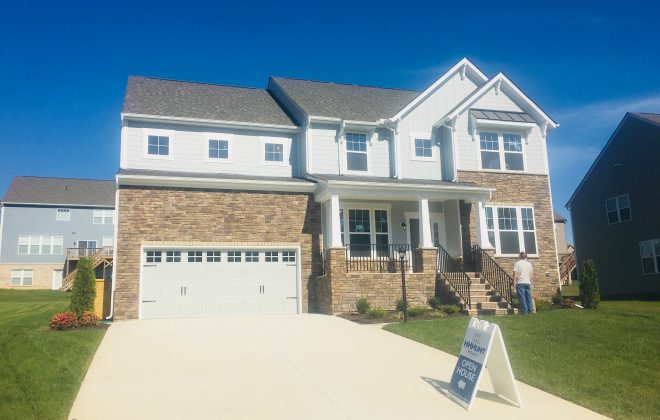Questions to Ask Your Agent about Title Insurance
Title insurance is not something in most people’s day-to-day vocabulary, unless you are in the construction, mortgage lending, or real estate industries. And yet, when you use a loan to purchase property, you are required to buy title insurance in every state except for Iowa. And even they have their own form of title insurance through a state-run Title Guaranty program.
If this is the first time you’ve heard of title insurance, or perhaps you’ve heard of it or even had to buy it but you’re still not completely clear on what it is, keep reading for specific questions to ask your agent about title insurance. These are key questions to ask your closing or title agent, real estate agent, or real estate attorney, so you can better understand what you’re paying for, what your title insurance covers, and what kind of title insurance is the best choice for your new property.
Let’s start with a quick review of the basic question: what is title insurance? (And if you’re already clear on what title insurance is, feel free to skip ahead.)
Title insurance is insurance that protects you or your mortgage lender (depending on the type of coverage you have) against financial loss should a defect be found in your property title after you’ve bought your property. What does “defect” mean in this case? It means if someone is found to have a competing claim to or a lien on your property, title insurance is meant to pay claimants or pay off pre-existing liens in order to settle the matter and cover your legal fees.
Without title insurance, if someone has a claim to your property or there’s a lien on your property because of a previous owner’s bad debt, you are on the financial hook for the claim or the debt. You could be on the hook for the entire value of your personal property – or more. Title insurance could help you keep your home in cases like these, because title insurance is meant to protect you from these kinds of claims.
Depending on your policy, title insurance can also reimburse you for a loss of property value if something happens or is discovered later that could affect the value of your home, such as incorrectly recorded property lines, easements, and mineral and air rights claims.
Given that your personal real estate property is one of the biggest investments you’ll ever make, title insurance premiums are a small price to pay to protect that investment against future claims and loss of value.
So, what are the questions to ask your agent about title insurance when you’re closing on your real property?
What kind of title insurance coverage is required?
Many places require at least lender’s coverage, which is paid for by the buyer. Lender’s title insurance protects the bank that’s backing your mortgage from losses, should your property title be found to have defects later down the road. However, you may choose to get owner’s coverage as well, because it protects you against the the same kind of financial losses should an opposing claim or lien on your title come to light. The lender’s title insurance only covers the lender’s losses, not yours.
How much is the premium?
Find out how much you are paying for your title insurance, especially since the title insurance premium will be part of your closing costs. And remember – title insurance is a one-time fee. You will not have monthly payments for this insurance.
How long will my title insurance last?
Lender’s title insurance is good until the mortgage is paid in full. Owner’s title insurance protects your property as long as you or your heirs own the property.
What kinds of things does my title insurance cover? And what’s the difference between a basic title policy and an extended title policy?
Coverage varies from company to company and from policy to policy. First, there are basic title insurance policies and extended title insurance policies. Make sure to ask your agent which kind you are getting and what the different prices are for each.
Basic title insurance usually covers title defects from before the purchase date of your property. For example, if a lien is put on the property because a previous owner didn’t pay their city taxes, and the title company missed the lien, then title insurance should pay the claim. If you have a lien put on your home by a contractor, because you didn’t pay your bills, title insurance wouldn’t cover that claim.
Basic title insurance usually covers defects, such as:
When someone or an institution has an existing lien on your property (as in the city tax example above)
There’s a problem in the public records (such as incorrect property lines or unclear ownership)
A previous owner or heir comes forward with a claim to your property
Some extended title insurance policies may also cover situations that could arise after you purchase your property, such as the discovery of easements on your property or if mineral or air rights didn’t convey with your property and no one was aware of it. Check out this article for more specific definitions of land ownership rights. Other things an extended or enhanced title insurance policy may cover are:
Mechanic’s lien for work that was completed before you purchased the policy
Zoning and boundary issues if your property isn’t properly zoned or if the subdivision is created improperly, for example
If you are required to remove an existing structure on your property (other than a fence or boundary wall) due to a previous owner’s failure to file for and secure necessary local permits
Forgeries that affect your ownership interest that pop up after closing
How risky is it not to buy owner’s title insurance?
The truth is title insurance doesn’t pay out a majority of the time, in large part because title insurance agents and real estate professionals take great care to exercise due diligence in clearing each property title of defects. However, humans make mistakes. There can be mistakes in public records. And mistakes may not be found for years, even decades. When defects come to light (very often when you go to try to sell your property), your property could suddenly become unmarketable (AKA: you won’t be able to sell it). That’s when the relatively low price of title insurance seems worth every penny, considering you could lose everything you’ve invested in your personal property and then some. You could be on the hook for the entire price of your property and more.
What company do you use or recommend? And what are my choices?
As the person paying for the title insurance, you get to choose which company to use. If you’re working with a reputable title company or real estate attorney, ask them what companies they work with and what their experiences have been with those companies. Your closing agent should be able to explain what the differences are between the companies and the different policies they offer. You should also feel free to research title insurance companies on your own.
Are there any discounts available on my premiums if I purchase lender’s and owner’s insurance policies together?
It doesn’t hurt to ask. The worst anyone can say is, “No.” And there often are discounts available, depending on the title insurance company you choose.
May I buy a house without buying title insurance if I pay cash for my house and don’t have to get a mortgage or other financing?
Yes, you wouldn’t need lender’s title insurance in this case, but you may want to consider owner’s insurance still for all the reasons we’ve mentioned.
So, feel empowered to know what you’re getting for your title insurance. Asking the right questions will signal to your agent that you are an informed consumer and that you’ve done your homework. These questions are great conversation starters, too! They can help bring good information to light. So, do a little digging and get that extra information, so you can make an informed choice and be prepared for your real estate closing.
Tags In
Categories
- Client story (5)
- Commercial (10)
- Residential (27)
- Richmond (8)
- Safe Harbor Title Company (19)
- Security (8)
- Uncategorized (9)
- Yorktown (2)








